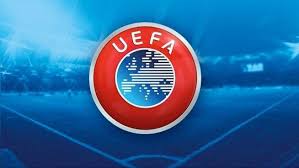September 16 – England’s national and club sides could be removed from UEFA competitions if a new regulator for the domestic game is considered to be “government interference” in the sport according to a leaked letter.
The letter, sent by UEFA to the UK’s new culture secretary, Lisa Nandy, raises concerns about a proposed independent football regulator (IFR) designed to ensure the financial sustainability of clubs.
It outlines UEFA’s position and while encouraging government support of the game, makes it clear there should be no government interference in the running of the sport.
“We have specific rules that guard against this in order to guarantee the autonomy of sport and fairness of sporting competition; the ultimate sanction for which would be excluding the federation from UEFA and teams from competition,” UEFA general secretary Theodore Theodoridis wrote in the letter, which has been seen by Insideworldfootball.
In reality it is unlikely the regulator would jeopardise England’s participation at Euro 2028 or Premier League clubs playing in Europe, but at the same time the warning is clear. Interfere in the balance of the sport and the autonomy of the federation then sanctions could be applied.
Unnamed sources at the government’s Department of Culture, Media and Sport have played down fears of such a punishment.
The letter from Theodoridis was less about regulator per se – which he gently supports – but more about the extent of its powers.
Of particular concern was the potential for what the letter describe as regulatory ‘scope creep’.
“UEFA is concerned about the potential for scope creep within the lFR (independent football regulatory). While the initial intent of the IFR is to oversee the long-term financial sustainability of clubs and heritage assets, there is always a risk that, once established, the IFR may expand its mandate beyond these areas. This expansion, intentional or otherwise, into broader aspects of football governance could undermine the established structures and processes of the sport, and amount to Government interference.”
UEFA asks that clearer limits on the IFR’s remit are defined in its own operational terms and that those defined terms are communicated to the governing body.
“To prevent scope creep, therefore, it is essential that the IFR’s mandate be clearly defined and
strictly limited to the long-term financial sustainability of clubs and heritage assets,” said Theodoridis.
Theodoridis’s letter stresses that it was “encouraged by the intent of the original fan-led review”. However it reminds Nandy that the intention was that “this regulatory area should be returned to the FA [Football Association] in time”.
With the UK’s relationship with Europe generally fragile following Brexit, Theodoridis emphasises UEFA’s position on European solidarity and union.
“We believe that there should be commonality in licensing conditions wherever possible and
they should not impact on sporting outcomes. Any new licensing requirements introduced by
the IFR must be meticulously aligned with existing UEFA and national frameworks,” said his letter.
“This alignment is essential to prevent contradictions and discrepancies that could undermine the effectiveness of both the new and existing systems. Discrepancies in licensing requirements can lead to confusion, inefficiencies, and potential conflicts, all of which would be detrimental to the governance and smooth operation of football clubs.”
Contact the writer of this story at moc.l1751756428labto1751756428ofdlr1751756428owedi1751756428sni@w1751756428ahsra1751756428w.wer1751756428dna1751756428 or moc.l1751756428labto1751756428ofdlr1751756428owedi1751756428sni@n1751756428osloh1751756428cin.l1751756428uap1751756428

